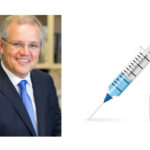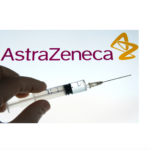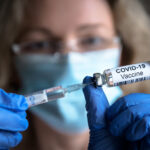No Jab, No Work: Healthcare Workers May Be Required to Have the AstraZeneca Vaccine

Healthcare workers have been told ‘they don’t get a choice’ when it comes to the Covid vaccine, amid reports that some Victorian health care staff are missing scheduled appointments, hoping to ‘hold off’ and wait for the Pfizer vaccine.
Concerns over AstraZeneca
There have been several reports in recent weeks of severe allergic reactions and blood clots resulting from the use of the vaccine developed by AstraZeneca jab. In Europe, the drug was suspended for authorities to assess the situation.
So, perhaps it’s understandable that some are hesitant about being injected with the drug, especially given that doctors have been warned they must ‘toe the line’ when it comes to giving advice and publishing information about Covid vaccines.
AstraZeneca is Australia’s vaccine of choice
The AstraZeneca injection, which is now being produced in Melbourne by CSL, is more widely available than the Pfizer product.
This is good news for both AstraZeneca and CSL, especially given that last year the Federal Government announced it had given suppliers of two Covid-19 vaccines indemnity against liability for rare side-effects. CSL was named as one of the suppliers, although at the time it was producing a vaccine in conjunction with Queensland University.
Essentially, this agreement means that the Federal Government will foot the bill should anyone pursue legal action against a supplier for detrimental side effects of the vaccine, although the Government has stopped short of setting up a ‘no fault’ scheme which would make it easier for victims to pursue compensation.
Side effects are minimal
Federal Health Department information sheets state that side effects of the AstraZeneca vaccine may include dizziness and stomach pain, but are usually mild and subside in one or two days.
Other vaccinations, such as the ‘flu shot also have common side effects such as tenderness around the injection site, fatigue, headaches and fever’, government information makes clear.
‘Pregnant women are generally advised to seek medical advice before having any vaccinations and the vaccine is not recommended for youths under 16 years of age’.
‘As mandatory as possible’
Last year, Prime Minister Scott Morrison told the media the Covid vaccine would be ‘as mandatory as possible’, before retracting his statement and saying it would be voluntary.
And although it is formally voluntary, the practical implications of not taking the vaccine could make it difficult to avoid for many who wish to work or travel.
Indeed, something that is formally voluntary may be considered practically mandatory if the restrictions upon those who decide not to follow ‘recommendations’ impede basic freedoms.
Health care workers
The NSW Government Health website is carefully worded, stating:
“NSW Ministry of Health is working with all Local Health Districts and Networks in NSW to identify the staff who will be considered for vaccination during the first phase of the program. Eligible staff will be informed by their management about how, when and where they will be able to get vaccinated.”
The website further states:
“The Commonwealth will lead on implementation for the residential aged care and disability care sectors. Healthcare workers who will be considered for prioritisation in Phase 1a of the vaccination program include: Ambulance and patient transport staff, Emergency department staff, Critical care ward staff.”
No vaccine, no travel
Recently though, Qantas CEO Alan Joyce made clear that international travel would not be available to anyone who hasn’t had a Covid vaccination, and it’s possible that other airlines will take the same stance as borders reopen.
And here’s where the lines begin to blur between a ‘voluntary vaccine’ and one that’s actually mandated if you want to undertake certain activities.
Questions remain about why Australia is in such a rush to roll out the vaccine given relatively low case numbers, along with a proven track record of good contact tracing and hotspot management.
Aussies ‘highly likely’ to get vaccination
Interestingly a recent survey showed that around 72 percent of Australians are highly likely to have the vaccine with 10 percent saying they’re ‘very unlikely’ to do so. What researchers agree on is that a key concern across the board is vaccine safety.
While the vaccine has been promoted as being able to reduce the severity of symptoms, it’s not entirely clear the effect that it will have on reducing community transmission.
Research is currently being undertaken at Melbourne University to predict some likely outcomes, with a specialist team analysing 648 potential scenarios for the next 12 months, considering a range of questions such as projected uptake of vaccines, their efficacy at stopping community transmission, the virus reproduction rate, and the strategies state governments use to halt the spread.
For now, uncertainty remains on a number of fronts. But those who wish to have the vaccine should be granted access, and, in our democracy, those who want to ‘wait’ or choose one vaccine over another, should also be encouraged to exercise their own freedom of choice.







